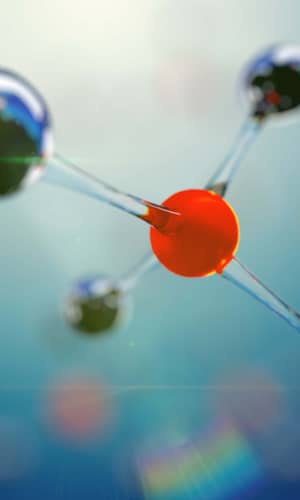Professional, peer-reviewed papers about molecular biology illustrating its support of creation by the Creator God within a biblical framework
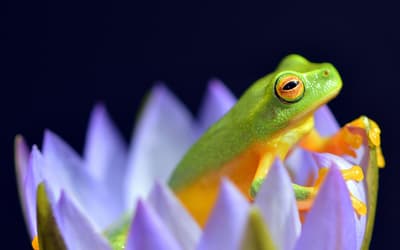
Initial Amphibian Molecular Baraminology Based on Analysis of the Mitochondrial Genome and Genome Size
Matthew Cserhati • Aug. 13, 2025
The present study analyzed the mitochondrial genome of 362 amphibian species from the National Center for Biotechnology Information Database.

Defining Holobaramins of Order Galliformes Using Molecular Data
Marshall Jordan , et. al. • Aug. 6, 2025
The astonishing creative genius and power of God are displayed by the wonderful creatures he has made, especially the birds.

Molecular and Morphological Baraminology of Xenarthra
Matthew Cserhati • Feb. 19, 2025
Xenarthra represents an apobaramin within which several holobaramins may be discerned, using both mitochondrial DNA and morphological data.
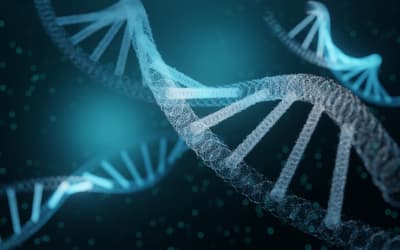
Facts Cannot be Ignored When Considering the Origin of Life #3: Necessity of Matching the Coding and the Decoding Systems
Change Laura Tan • March 23, 2022
DNA, however long it is and however many genes it can encode, is nothing without the molecular machineries to decode its encoded genes.

Facts Cannot Be Ignored When Considering the Origin of Life #2: Challenges in Generating the First Gene-encoding Template DNA or RNA
Change Laura Tan • March 23, 2022
This article argues that it is practically impossible to generate the first DNA (or RNA) template abiotically.

Facts Cannot Be Ignored When Considering the Origin of Life #1: The Necessity of Bio-monomers Not to Self-Link for the Existence of Living Organisms
Change Laura Tan • March 9, 2022
The required automatic self-linking of monomers for abiogenesis is incompatible with the genetic information coding and decoding system that is necessary for life.

Reply to “Response to ‘On the Creationist View on mtDNA’.”
Stefan Frello • Oct. 4, 2017
This is a short reply to Dr. Nathaniel Jeanson’s response to my comment to his work on human mtDNA.
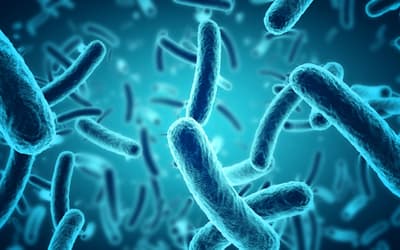
Molecular Structures Shared by Prokaryotes and Eukaryotes Show Signs of Only Analogy and Not Homology
Jean O’Micks • Nov. 9, 2016
Until now there have been two basic theories on the evolution of cellular complexity.
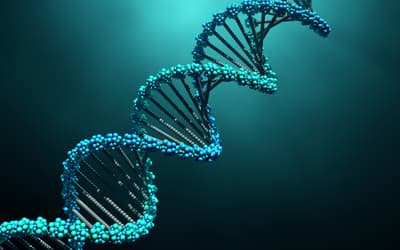
Beyond the DNA-Protein Paradox: A “Clutch” of Other Chicken-Egg Paradoxes in Cell and Molecular Biology
Derrick M. Glasco • Aug. 31, 2016
The DNA-protein paradox has long been a point of contention in the origin of life debate.

Big Gaps and Short Bridges: A Model for Solving the Discontinuity Problem
Change Laura Tan • July 6, 2016
This paper argues that the issue with the origin of life and the origin of biodiversity is not an issue of time, though deep time is problematical.
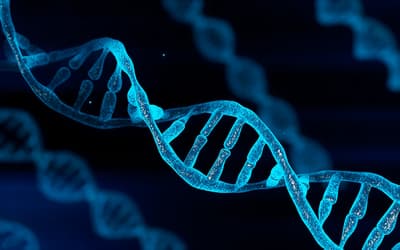
On the Origin of Human Mitochondrial DNA Differences, New Generation Time Data Both Suggest a Unified Young-Earth Creation Model and Challenge the Evolutionary Out-of-Africa Model
Dr. Nathaniel T. Jeanson • April 27, 2016
These results underscore the biblical model of human origins and simultaneously undercut the validity of the evolutionary out-of-Africa model.
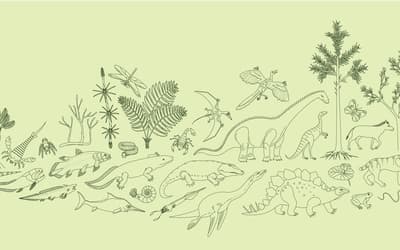
On the Origin of Eukaryotic Species’ Genotypic and Phenotypic Diversity
Dr. Nathaniel T. Jeanson , et. al. • April 20, 2016
This study shows that created heterozygosity, together with natural processes that are observable, is sufficient to account for species’ diversity.
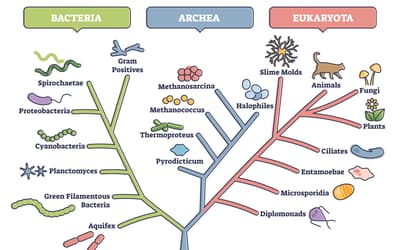
Using Taxonomically Restricted Essential Genes to Determine Whether Two Organisms Can Belong to the Same Family Tree
Change Laura Tan • Nov. 4, 2015
How are all life forms connected? Are they linked by one giant family tree, a web, or a forest of family trees?

Challenging the BioLogos Claim that a Vitellogenin (Egg-Laying) Pseudogene Exists in the Human Genome
Jeffrey P. Tomkins • Oct. 21, 2015
Interestingly, BioLogos is probably the only evolutionary group that puts such a high level of focus on this hypothesis as key evidence for evolution.
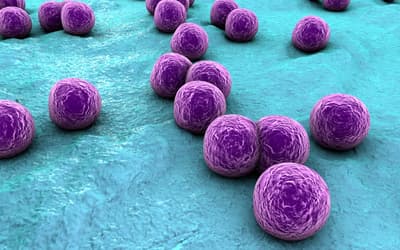
The Genesis and Emergence of Community-Associated Methicillin-Resistant Staphylococcus aureus (CA-MRSA): An Example of Evolution in Action?
Dr. Alan L. Gillen , et. al. • Oct. 14, 2015
We have seen a changing profile from HA-MRSA to CA-MRSA. This is potentially dangerous because the new strains are more virulent and aggressive.

Documented Anomaly in Recent Versions of the BLASTN Algorithm and a Complete Reanalysis of Chimpanzee and Human Genome-Wide DNA Similarity Using Nucmer and LASTZ
Jeffrey P. Tomkins • Oct. 7, 2015
Past evolutionary research in comparative DNA analysis between chimps and humans has employed a great deal of preferential and selective data analysis.
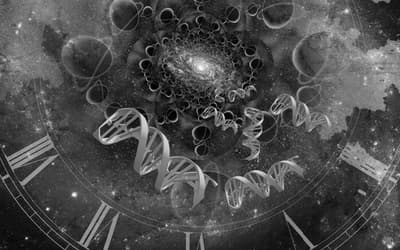
A Young-Earth Creation Human Mitochondrial DNA “Clock”: Whole Mitochondrial Genome Mutation Rate Confirms D-Loop Results
Dr. Nathaniel T. Jeanson • Sept. 23, 2015
New data agree with the expectations from D-loop results, further confirming the origin of humans within 6000 years and rejecting evolutionary timescales.

Is HIV-1 Losing Fitness Due to Genetic Entropy?
Yingguang Liu • July 1, 2015
HIV-1 is an important example which shows genetic entropy operating throughout the biological realm, even while meaningful genetic adaptations are occurring.
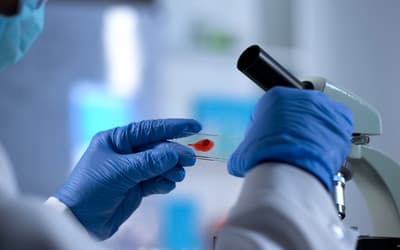
Mutations in the nef Gene make HIV-1 More Virulent
Yingguang Liu • June 17, 2015
Mutational degeneration of the nef gene manifests as increased pathogenicity of HIV-1.

Mitochondrial DNA Clocks Imply Linear Speciation Rates Within “Kinds”
Dr. Nathaniel T. Jeanson • June 3, 2015
The mechanism of speciation remains one of the most contested scientific questions among both evolutionists and creationists.

Cyclic Selection in HIV–1 Tropism: Microevolution That Is Going Nowhere
Yingguang Liu • April 29, 2015
The molecular interaction of HIV-1 is merely cyclic fine-tuning of an existing function and illustrates the broken relationship between the virus and the host.
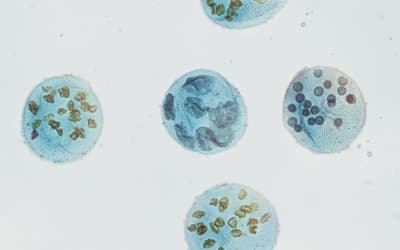
Information Processing Differences Between Bacteria and Eukarya—Implications for the Myth of Eukaryogenesis
Change Laura Tan , et. al. • March 25, 2015
Based on differences in gene sets and molecular machines between bacteria and eukarya, we continue to demonstrate that unbridgeable evolutionary chasms exist.

Information Processing Differences Between Archaea and Eukarya—Implications for Homologs and the Myth of Eukaryogenesis
Change Laura Tan , et. al. • March 18, 2015
In the grand evolutionary paradigm, the origin of the eukaryotic cell represents one of the great mysteries and key hypothetical transitions of life.

Natural Selection: Assessing the Role It Plays in our World
Dr. Jean Lightner • March 4, 2015
Natural selection is controversial among many scientists, both in evolutionary and creationary circles.
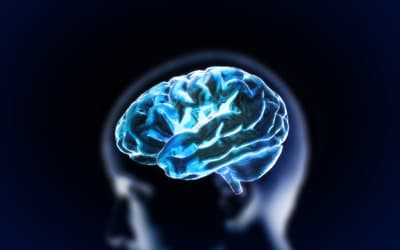
Christians, the Brain, and Person: Conceptual Confusion, Unintelligibility, and Implications
Callie Joubert • June 11, 2014
That psychological properties can be attributed to a brain is a popular notion, even among Christians. This paper argues that such claims are incorrect.
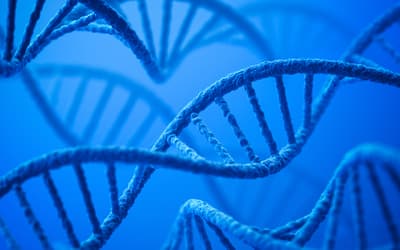
The Human GULO Pseudogene—Evidence for Evolutionary Discontinuity and Genetic Entropy
Jeffrey P. Tomkins • April 2, 2014
Modern genomics provides the ability to screen the DNA of a wide variety of organisms to scrutinize broken metabolic pathways. This data has revealed wide-spread genetic entropy in human genomes.
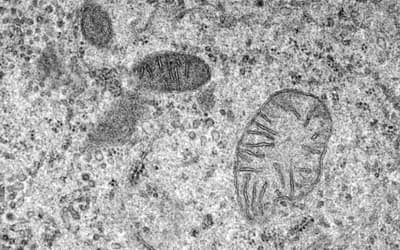
Recent, Functionally Diverse Origin for Mitochondrial Genes from ~2700 Metazoan Species
Dr. Nathaniel T. Jeanson • Dec. 11, 2013
The young-earth creation model currently lacks a robust explanation for molecular diversity.
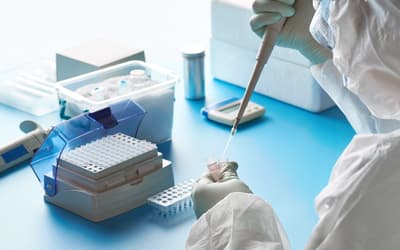
The Human Beta-Globin Pseudogene Is Non-Variable and Functional
Jeffrey P. Tomkins • Aug. 21, 2013
The HBBP1 gene appears to be a highly functional and cleverly integrated feature of the human genome that is intolerant of mutation.
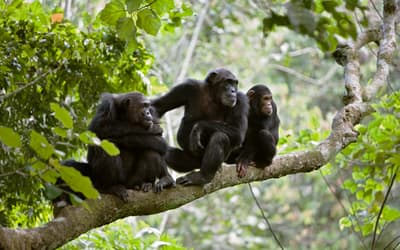
Comprehensive Analysis of Chimpanzee and Human Chromosomes Reveals Average DNA Similarity of 70%
Jeffrey P. Tomkins • Feb. 20, 2013
A common evolutionary claim is that the DNA of chimpanzees and humans are nearly identical. Modern DNA research is showing much higher levels of discontinuity.
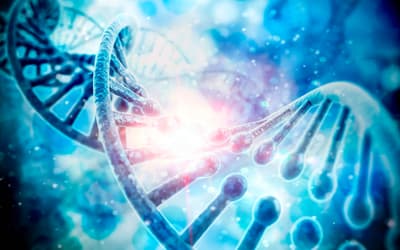
An Evaluation of the Myth That “Nothing in Biology Makes Sense Except in the Light of Evolution”
Dr. Jerry Bergman • Feb. 8, 2012
I reviewed both the textbooks used for life science classes at the college where I teach and those that I used in my past university course work.
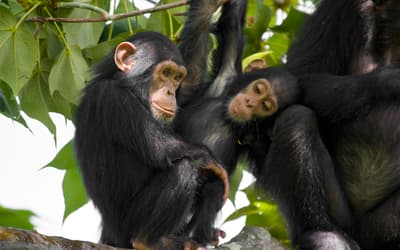
How Genomes are Sequenced and Why it Matters: Implications for Studies in Comparative Genomics of Humans and Chimpanzees
Jeffrey P. Tomkins • June 22, 2011
When evaluating comparisons between genomes using DNA sequence, it is important to understand the nature of how that sequence was obtained and bioinformatically manipulated before drawing conclusions.
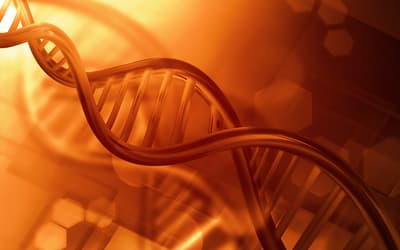
Toward an Accurate Model of Variation in DNA
Mitchel Soltys • March 2, 2011
The Bible’s description of created kinds implies an information model which uses variables. The findings in this paper show that a model which uses variables forms a basis for understanding biology.
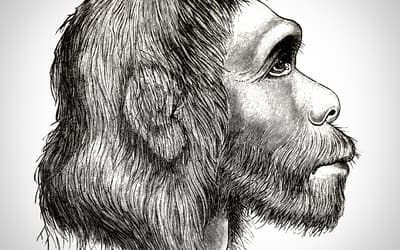
Those Enigmatic Neanderthals
Anne Habermehl • Jan. 13, 2010
Young-earth creationists rightly consider that Neanderthals were human, but are divided on various issues.
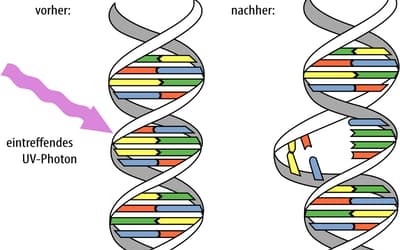
Towards a Creationary Classification of Mutations
Jonathan Bartlett • Dec. 2, 2009
Mutations are normally classified according to their proximal effect on an organism’s fitness, whether beneficial, deleterious, or neutral.
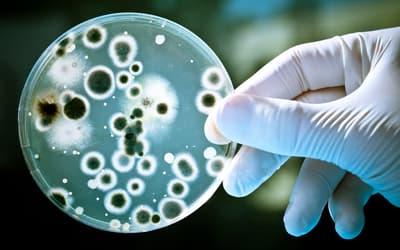
The Role of Genomic Islands, Mutation, and Displacement in the Origin of Bacterial Pathogenicity
Dr. Georgia Purdom • Oct. 28, 2009
Bacteria are mostly beneficial, even though a minority are known as pathogens. They are necessary for natural processes such as human digestion and biogeochemical cycling.

Fungi from the Biblical Perspective
Ira Loucks • Oct. 21, 2009
Fungi are intriguing organisms with a wealth of diversity in their morphology and ecology. Determining the fundamentals of their biology from a biblical perspective is a daunting but achievable task.
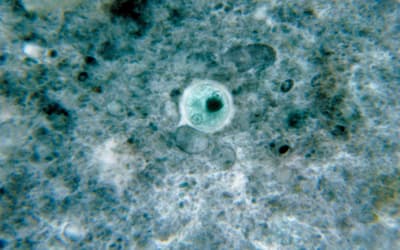
A Possible Function of Entamoeba histolytica in the Creation Model
Frank Sherwin • Oct. 14, 2009
There is a need for parasites such as Entamoeba histolytica to be addressed from a biblical perspective that may include their original symbiotic or mutualistic association in man.

A Review of Mitoribosome Structure and Function Does not Support the Serial Endosymbiotic Theory
Daniel Criswell • Oct. 7, 2009
It is apparent from the knowledge gained about mitochondria ribosome structure and function since the proposal of the Serial Endosymbiosis Theory that prokaryotes are not the ancestors of eukaryotes.

The Natural History of Retroviruses
Yingguang Liu , et. al. • Sept. 30, 2009
Evolutionists assume that all endogenous retroviruses are remnants of germ line infection by exogenous retroviruses.
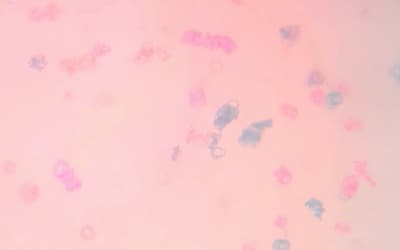
More Abundant than Stars
Dr. Georgia Purdom , et. al. • Sept. 23, 2009
Microbes form a life-sustaining organosubstrate on earth and contribute to our understanding of geology, ecology, and biology.

Bacterial Attenuation and its Link to Innate Oncolytic Potential
Luke Kim • Oct. 15, 2008
Although bacteria have been mainly recognized as disease causing agents, there are abundant scientific evidences that bacterial pathogenicity is not the major biological function of bacteria.

Louis Pasteur’s Views on Creation, Evolution, and the Genesis of Germs
Dr. Alan L. Gillen , et. al. • Dec. 27, 2020
Shortly after Darwin published On the Origin of Species, Pasteur began to challenge the idea of spontaneous generation.
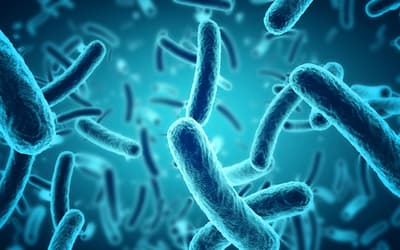
Microbes and the Days of Creation
Dr. Alan L. Gillen • Jan. 16, 2008
The world of germs and microbes has received much attention in recent years. But where do microbes fit into the creation account?
Molecular Biology on Answers Research Journal
Evolutionists assert that life arose from non-life billions of years ago (abiogenesis). The first organism is proposed to be unicellular and simplistic. Over time, processes like mutations and natural selection have added systems at the nuclear and cellular level, resulting in complex, multi-cellular organisms. Organelles like mitochondria and chloroplasts are believed to have originated from bacteria that were engulfed by cells but not digested. They formed symbiotic relationships within the cell leading to the formation of all multi-cellular life like plants and animals. Complex biochemical systems such as DNA replication, transcription, translation, biosynthesis, metabolism, etc., are believed to have evolved in a stepwise fashion over billions of years.
The aim of these research papers in Answers Research Journal (ARJ) is to show that molecular biology is so complex that it had to be designed by the Creator God. These professional, peer-reviewed papers address issues related to molecular biology and how that relates to other disciplines. Our journal considers molecular biology in light of creation, evolution, genetics, cellular biology, genome comparisons, mutations, DNA clocks, and more.
Molecular biology encompasses many systems, as listed previously, that are irreducibly complex. These systems involve many steps, many proteins, and many chemicals that must work together in precisely the right order at the right time. They could not have evolved in a stepwise fashion because the system would fail to function without all the components. Instead, all biological systems were created instantly by God, fully formed and functioning.
